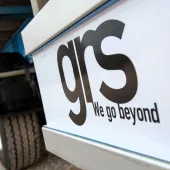MPA Spring Budget response

Mineral Products Association welcomes Aggregates Levy freeze but disappointed by future tax hikes
THE Chancellor’s decision to continue the freeze in the Aggregates Levy for 2021/22 has been welcomed by the Mineral Products Association (MPA), although it warned that future indexation will lead to increased costs for the sector. On confirmation of the removal of red diesel from the sector, and almost all other industrial sectors, the Association said the move was disappointing and would simply raise the cost of mineral products and the homes and infrastructure they go into.
The Review of the Aggregates Levy in 2019 clearly showed the industry’s positive environmental credentials, which have been acknowledged by Government, but with significant demand for MPA members’ products to supply the Government’s infrastructure and housing ambitions, the Association said that although it was welcome news that this tax burden on producers has not been increased in the short term, it was disappointing to hear that that it will be increased by indexation in the future.
The MPA added that decision to remove the red diesel exemption from the sector in 2022 would be a £100 million tax raid on an industry that is still recovering from the economic impact of the Coronavirus pandemic. It said that with no alternatives to diesel-powered equipment on or even near the market yet, the industry would have no opportunity to switch equipment but would simply face increased taxes, and in a global market for equipment, the incentive effect on suppliers would be insignificant.
Nigel Jackson, chief executive of the MPA, said: ‘The announcement on the Levy is good news in the short term but the intention to return to annual indexation from next year is not. There is still unfinished business on the review, such as the Community Fund that we proposed, and several further consultations are expected.’
On red diesel, Mr Jackson said it was a disappointing decision that was really just a soft-target tax raid. ‘Our sector pays its fair share of environmental taxes already and has a great track record on reducing carbon and contributing to biodiversity net gain. We will shift away from diesel when the suppliers bring their alternatives to the market, but that’s not going to happen for some years.
‘It is very disappointing that the Chancellor has decided to press ahead with these tax increases from next year. There are other sectors whose environmental footprints are far greater than ours, who consistently escape environmental taxation and some who even receive subsidies. Government needs to create greater parity across all business to ensure there is a logical basis for the imposition of green taxes,’ said Mr Jackson.
Meanwhile, in a separate Budget response, Rick Green, chair of the Asphalt Industry Alliance (AIA), said what was needed from the Chancellor today was a five-year commitment to investing in local roads, to allow local highway authorities to plan ahead and implement a more cost-effective whole-life approach to upgrades and maintenance. 'It is completely counterproductive, just weeks after announcing a £500 million pothole fund for the coming year, that local authorities are now finding out that other funding streams that they rely on to maintain their local road networks are already being cut,' said Mr Green. ‘We recognize difficult choices are having to be made at present, but this giving with one hand and taking away with another doesn’t make sense – it will only lead to deteriorating road conditions and a rising bill to put them right.’
Further Budget responses
In the Construction Equipment Association’s Budget response, chief executive officer Rob Oliver said the announcement of a ‘Super Deduction’ for capital investment should stimulate decisions from companies currently undecided about their expenditure plans. ‘For every £100 they spend, they will receive a tax credit of £130. We look forward to reviewing the details, but on the face of it, it looks like it will be a great time to renew the machine fleets of plant hirers and contractors. These tax concessions are clearly a quid pro quo for swallowing a corporation tax hike in the future,’ he remarked.
Peter Caplehorn, chief executive of the Construction Products Association, said: ‘We knew beforehand that the Budget would focus primarily on the recovery from the virus and job protection; therefore, we were not surprised that construction per se was not a major beneficiary today. Still, members will note, in particular, the trial of ‘super deductions’ for business investment; extension of the stamp duty holiday; further detail on a UK infrastructure bank and commitment to boosting science and innovation, as well as a doubling of incentives for apprenticeships.’









